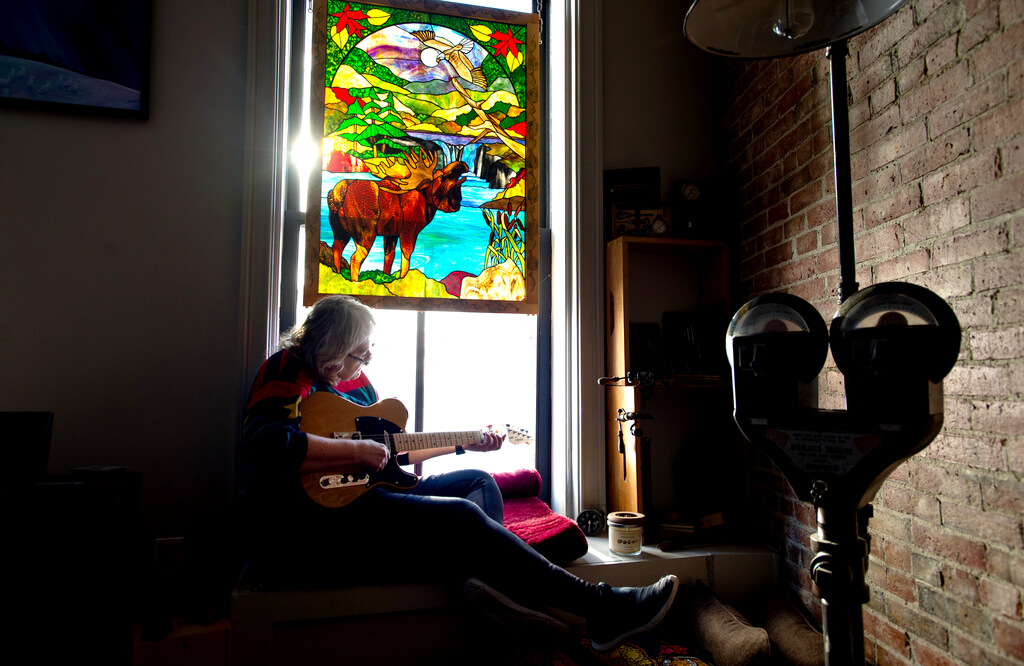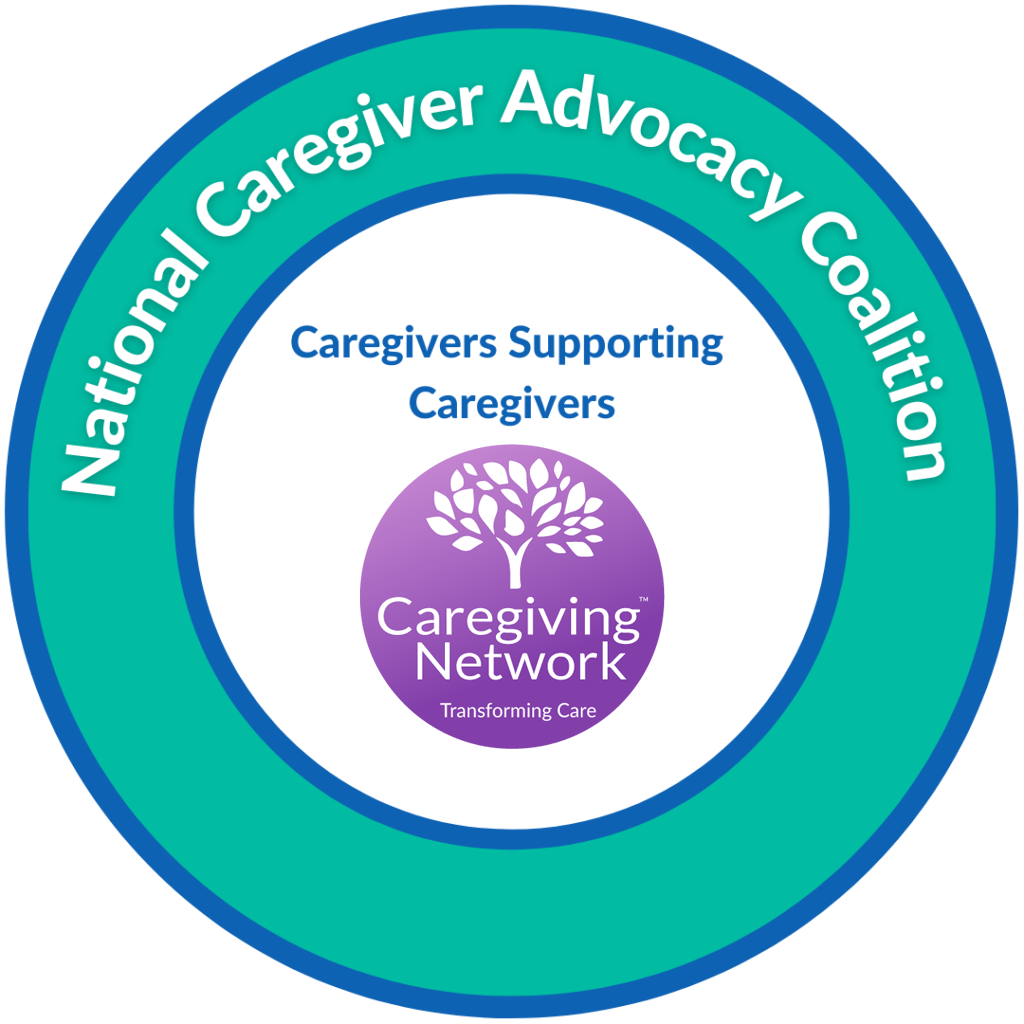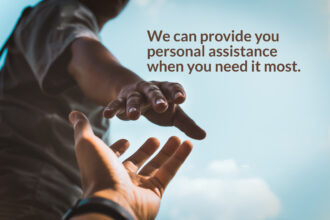This is what self-care looks like for caregivers

Bangor Daily News – Updated August 2021
Author: Julia Bayly
It's crucial that caregivers take time for themselves to do things they enjoy as part of their own self-care. Credit: Linda Coan O'Kresik / BDN
When Patty Pendergast moved her mother from Greenwich, Connecticut, to her Thorndike homestead to care for her a year and a half ago, she went in with her eyes wide open. She knew if she did not make time for herself, she’d be no good to herself or her mother.
“There was never any doubt in my mind I would take care of my mom when the time came,” Pendergast said. “But there are not many Hallmark moments.”
Her 88-year-old mother has dementia, so that means Pendergast, 66, handles her finances, medical appointments, feeding and more intimate needs like bathing and personal care.
“This is not just a half hour a day,” Pendergast said. “There are times when I’m up at 2 a.m. when she is sick or confused and wandering around the house feeling anxious.”
In a very real way, Pendergast said, the roles between her and her mom are now reversed. She now acts as the parent to her mom. Through it all, Pendergast makes sure she is taking time for herself so she does not burn out. Her homestead’s daily chore list provides the perfect opportunity to spend time away from caregiving.
“Have you seen my greenhouse?” she jokes. “I spend a great deal of time in there and outside with my goats and chickens.”
She also reserves Wednesday nights for herself so she can volunteer with her local planning board and budget committee. All of this is possible, she said, because she arranged for private health care professionals to come in on a regular basis to take over caregiving activities when she is not around.
“That’s a cool thing about Maine,” Pendergast said. “There are a lot of elder services out there.”
Pendergast said she is also able to get intellectual and social stimulation from a global network of friends.
“I have a lot of really smart friends,” she said. “When I feel like I am starting to lose my mind, I have people all over the world I can call day or night and having a phone is a real gift in those times.”
Finding yourself responsible for meeting the physical, mental and spiritual needs of another person totally dependent on you can take up a lot of your time and energy. That’s why caring for yourself is one of the most important things you can do as a caregiver.
Unfortunately, it’s often one of the most neglected.
But mental health experts agree that when the caregivers’ needs are met, the person receiving the care also benefits.
A caregiver who doesn’t take time for themselves risks physical and emotional exhaustion. That can lead to what is known as caregiver burnout, a very real mental and physical condition, according to Angela Fileccia, social worker and manager of Northern Light Acadia Hospital’s healthy life resources program.
Untreated, chronic stresses associated with caregiving can actually trigger the release of certain hormones in the body that lead to fatigue, irritability, a weakened immune system, digestive issues, headabes, body pain and weight gain.
“There can be a feeling of never doing enough,” Fileccia said. “There can also be feelings of guilt when the caregiver wishes they could take time off.”
There are a number of ways caregivers can practice effective self-care, according to Fileccia. And it doesn’t need to be overly complicated or time consuming.
“People can get stuck on this idea of self-care being this big event like a whole day at a spa or a big vacation,” Fillecia said. “Those things are nice but if you are a primary caregiver, they may not always be realistic.”
Instead, caregivers can provide themselves with what Fileccia calls “micro self-care.” Even spending five minutes several times a day focusing on yourself can make a huge beneficial difference, she said.
“This ‘micro self-care’ can be as simple as taking those five minutes to make sure you are meeting your own basic needs,” Fileccia said. “It can be the time you are taking to make sure to drink enough water, eat properly or getting a short walk in for some fresh air — all of those things can go a long way toward your wellbeing.”
As a caregiver sometimes you need to be your own motivational coach, Fileccia said.
“We underestimate the power of self talk,” she said. “You want to counter the negative thoughts you have about taking time for self-care by reminding yourself that ‘If I take this five minute break to walk around the yard I will be more available to my loved one.’”
That means practicing self-compassion as part of your self-care routine, according to the “Self Care for the Caregiver” report published online by Harvard Medical School.
“Being kind to yourself is the foundation to self-care,” according to the report. “Self-compassion means giving yourself credit for the tough, complex work of caregiving, stepping away from the self-critical, harsh inner voice and allowing yourself time — even if it’s just a few minutes a day — to take care of yourself.”
While small acts of self-care practiced regularly are important, longer breaks are also important, Fileccia said.
“That break or reprieve is essential,” she said. “It allows you to disconnect from your daily routine and concentrate on yourself.”
It can be tricky, she said, especially if your loved one can’t be left alone. But there are resources, including local Area Agencies on Aging, that can help you locate services that provide respite care.
“This means you can find someone to either check in on your loved one when you are away or stay with them,” Fileccia said. “That can give you peace of mind while you are away.”
Pendergast takes those micro self-care breaks every day, and said they are crucial.
“I go out and dig in my garden,” she said. “I can recharge just by standing outside and listening to the woodcocks.”
Pendergast has a set routine with her mother that helps reduce any confusion the older woman may experience. At the same time, she is fully prepared for any number of things to disrupt her planning. There are times, for example, when Pendergast has to cancel or reschedule her own plans if her mom is sick.
That kind of flexibility is crucial, according to Fileccia. Holding yourself to a strict and rigid daily schedule can actually sabotage the best self-care intentions, Fileccia said. She’s not downplaying the importance of having a routine, but she said it is just as important to cut yourself some slack if something throws a wrench into your scheducle.
“Certainly design a schedule but don’t become so attached to it that if it gets derailed it sends you for a loop,” she said. “Think of everything as an endless draft that may need revisions and that way you will get less stressed when a schedule becomes revised.”
Another important part of self-care, according to Fileccia, is maintaining social connections with people outside of the caregiving setting. Spending time with friends, family or engaging in outside activities is critical to maintaining mental health and avoiding feelings of isolation.
At the same time, interacting with people also involved with caregiving can be very helpful.
According to the Harvard study spending time with other caregivers will help you realize you are not alone and there are others going through similar experiences. That, in turn, promotes the ability to be self-compassionate.
“We humans value that social interaction and camaraderie with someone who is going through the same thing as we are,” Fileccia said. “We need that understanding and support.”
There are a variety of support groups out there for caregivers, Fileccia said, in addition to online forums and social media groups devoted to caregiving. She recommends contacting your local Area Agency on Aging for a list of support resources. The national organization Family Caregiver Alliance also has some excellent tips and resources for finding support groups and practicing self-care at caregiver.org.
Becoming adept at self-care does not come easily for some, Fileccia said. But by taking it in baby steps, you can learn to carve out that time for yourself. Part of that is starting to identify those obstacles to self-care — like feelings of guilt or the desire to “do it all.” Once you do, you can start changing that behavior one small step at a time.
Mental health experts compare caregiver self-care to the rules covering oxygen mask use on a plane. Everyone knows you are supposed to put your own mask on before helping anyone else. That’s because you can only be of help when you’re getting what you need.
“Once you start practicing self-care you are going to be refreshed and able to care for your loved one as your best self,” Fileccia said. “Ultimately, that is what people want.”

Join our National Advocacy Coalition Today and Connect with Others like You





